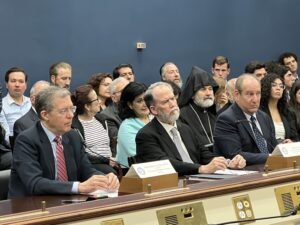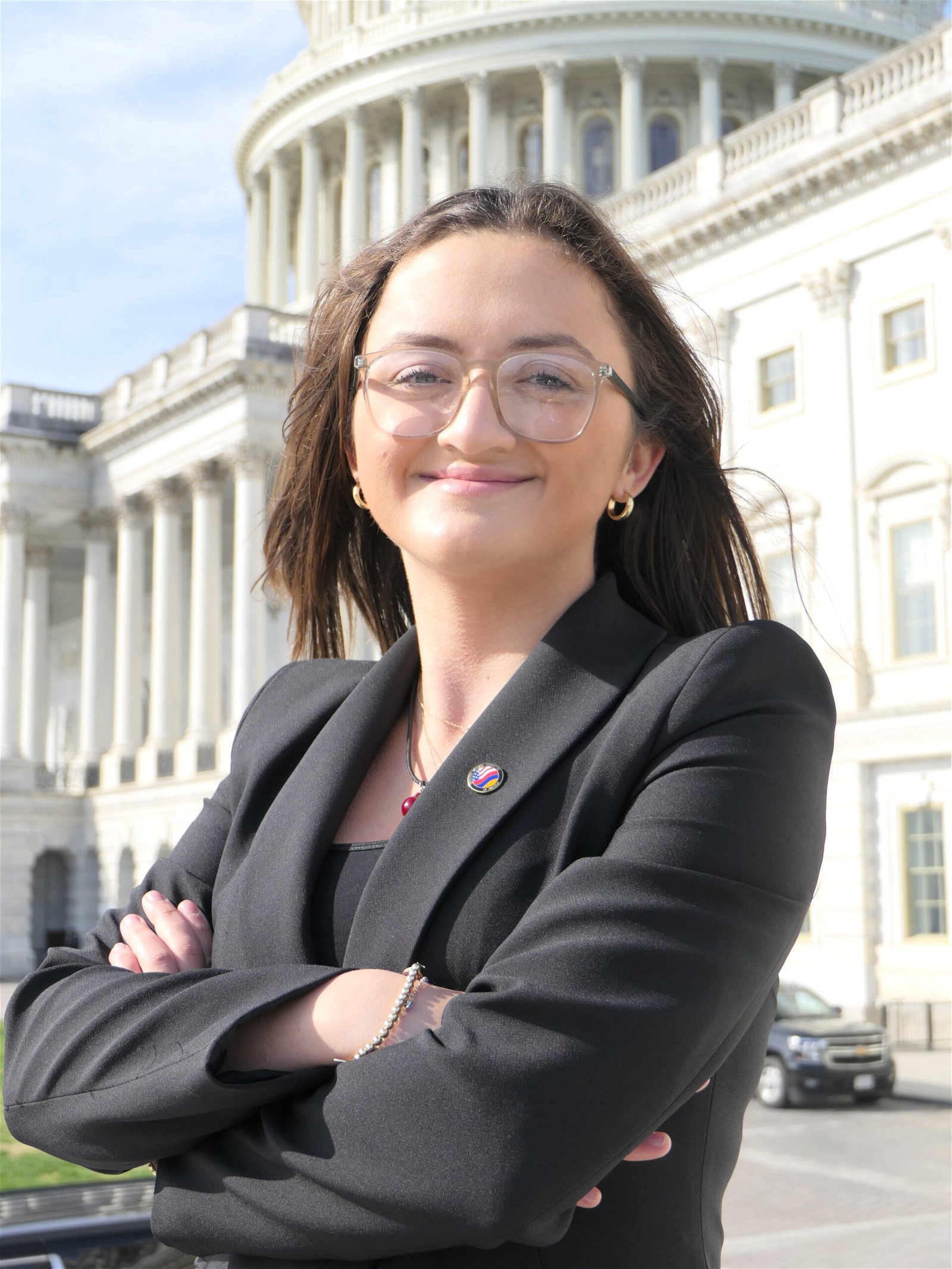
Last Wednesday’s hearing of the Tom Lantos Human Rights Commission, “Safeguarding the People of Nagorno-Karabakh,” focused on the need for tangible actions by the US Congress and the White House to hold the coalition of regimes in Baku and Ankara accountable for their continued human rights violations against the civilians of Artsakh. A wide-ranging discussion by testifying panelists Michael Rubin (Senior Fellow, American Enterprise Institute), David Phillips (Director, Peace-Building and Human Rights Program, Institute for the Study of Human Rights, Columbia University), Ambassador Sam Brownback and Ambassador John Evans addressed the arsenal of punitive measures available to the Biden Administration, in several cases building upon decades of international precedent of holding leaders accountable for human rights abuses. During the two-hour hearing, panelists Brownback, Rubin and Phillips highlighted three core options to sanction Azerbaijan, specifically the enforcement of Section 907 of the FREEDOM Support Act, the Global Magnitsky Act and the Humanitarian Corridors Act.
Enforcing Section 907 Restrictions on US Aid to Azerbaijan
Noting that the waiver on Section 907 is currently up for review by the executive branch, Amb. Brownback, the initial sponsor of the waiver during his time as Kansas Senator in 2002, began his testimony in front of Commission co-chairs Representatives Chris Smith (R-NJ) and James McGovern (D-MA) by calling for its immediate enforcement. “907 already exists that if US weaponry is being used in an offensive fashion against Armenia, this is a violation of that, and that’s taking place now. So I think unless Azerbaijan lifts that blockade, those Section 907 sanctions should be put in place by the President, by the Administration, and they ought to take place now if they will not lift this blockade,” Brownback noted. The measure, whose enforcement has been waived by the White House every year since 2002, would cut off Baku’s access to many of the US-sourced weapons used to enforce its now six-month blockade of the Berdzor (Lachin) Corridor. With a decision expected within the next several weeks, it remains to be seen whether shifting power dynamics in the region over the last year, coupled with increased scrutiny and pressure from Congress, will lead to a reversal of 20 years of foreign policy precedent by the Biden Administration.
The Humanitarian Aid Corridor Act
Similar to the enforcement of Section 907, the enforcement of S.230, the Humanitarian Corridors Act (HACA), was mentioned by Phillips, utilizing measures first introduced by Amb. Brownback’s Senate predecessor, Sen. Bob Dole in 1995. As Phillips noted in his testimony, “It provides that no assistance shall be furnished under this chapter of the Arms Control Act to any country when the government of such country prohibits or otherwise restricts directly or indirectly the transport or delivery of US humanitarian assistance.” The HACA was originally passed at the height of conflict in the Balkans and the tail end of the first Artsakh (Nagorno-Karabakh) war, creating a multitude of possibilities to target arms exports, without the threat of the waiver associated with Section 907 of the FREEDOM Support Act.
Applying Magnitsky Laws
Separately, focusing on individual-based sanctions, panelists Rubin and Phillips stressed the vital role that measures like the Global Magnitsky Act of 2016 can play as specific punitive measures against the top individuals responsible for the perpetuation of Azeri corruption, state-sponsored terrorism and crimes against civilians. Yet, as Phillips noted, the pursuit of sanctions via the Global Magnitsky Act cannot occur without the tandem systematic documentation of the pattern of violence perpetrated by the Azerbaijani army.
While the four panelists and the bipartisan group of lawmakers concluded the hearing with a multitude of possibilities for new actions improving US policy on Artsakh, the success of these proposals, both on the sanctions front and those involving further Congressional inquiry, will have to withstand the test of time, an often unkind metric in Washington. For now, all eyes are on the impending waiver renewal or enforcement of Section 907 of the FREEDOM Support Act, the first indication of whether or not the tide is truly changing in support of Artsakh.



Be the first to comment